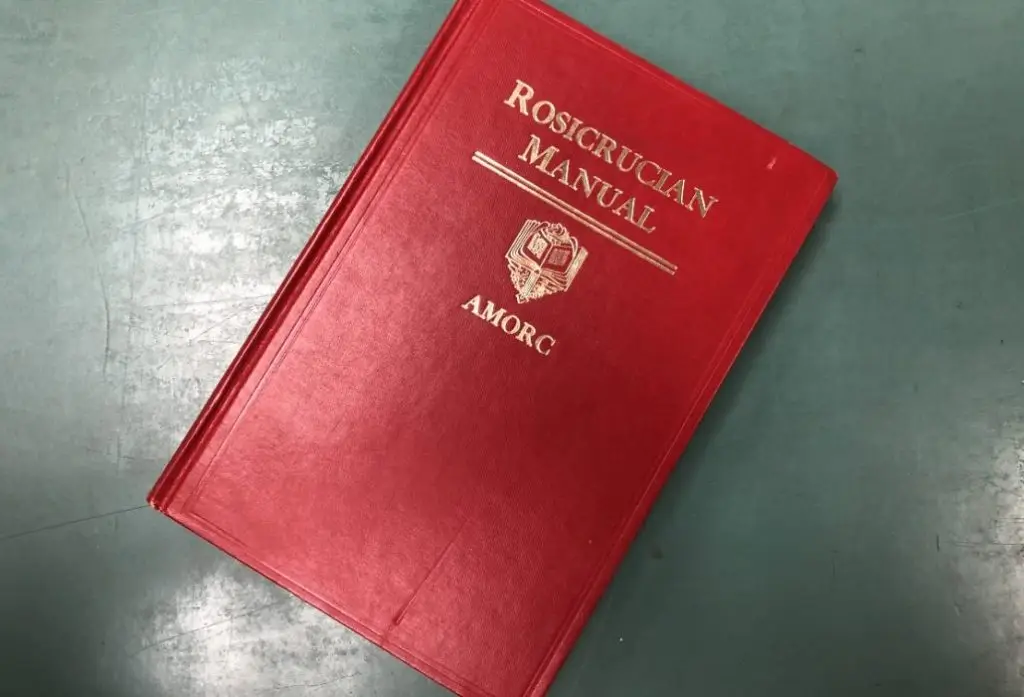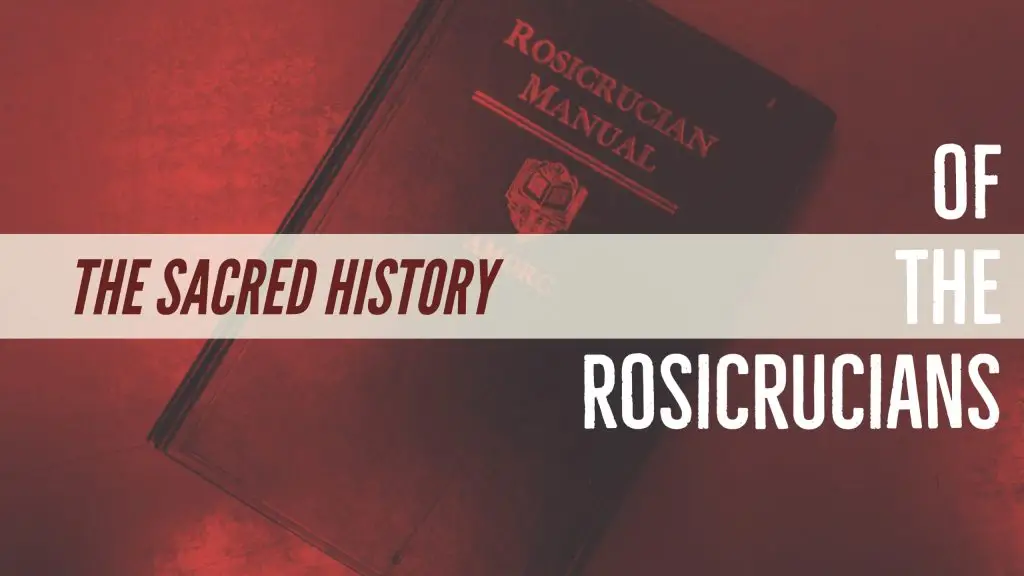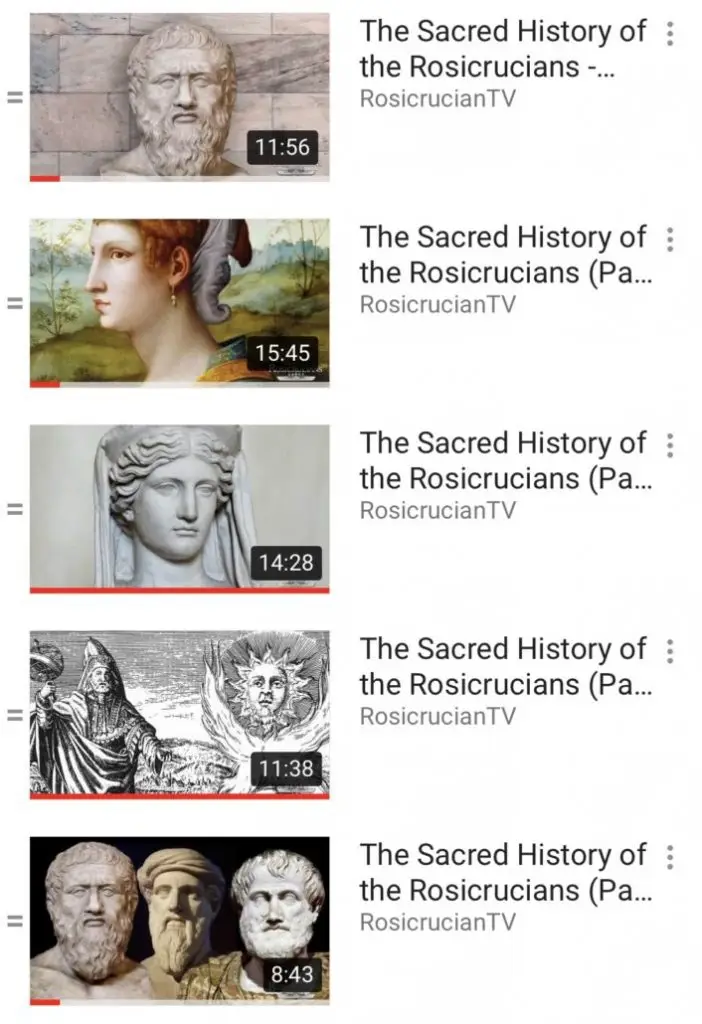Who are the Rosicrucians? What makes the Rosicrucian history sacred and how does it take root in the ancient world? If you came here to learn more about the heritage and importance of the Rosicrucian tradition, then you are in the right place.
The traditional history of the Rosicrucians consists of mystical allegories and fascinating legends that have been passed down for centuries by word of mouth. The Rosicrucian Order’s chronological accounts are based on specific dates and verifiable facts.

What is the Sacred History of the Rosicrucians?
The Sacred History of the Rosicrucians is a nine part episodic series exploring the heritage and importance of the ancient mystery schools and the emergence of the Rosicrucian movement that continues to perpetuate the traditions and philosophies that sprang from them.
I was contracted by the Rosicrucian Order, AMORC to produce and narrate The Sacred History of the Rosicrucians series. The objective was to produce a series in the same vein as my Ancient Egypt Mystery Schools, a series that explores the mystery traditions rooted in ancient Egypt. You can find it in the private membership section at AncientEgyptMysterySchools.com.
I have compiled a playlist for all nine episodes for The Sacred History of the Rosicrucians for your viewing pleasure on my YouTube channel. Please take a moment to subscribe to my channel for more videos like these by clicking the image below.
Part 1: Atlantis and Ancient Egypt
Join us as we explore the heritage and importance of Atlantis and ancient Egypt in THE SACRED HISTORY OF THE ROSICRUCIANS (The first episode in our nine part series!)
Part 2: The Essenes, the Orphic Mysteries, and the Delphic Mysteries
Join us as we explore the heritage and importance of the Essenses, the Orphic Mysteries, and the Delphic Mysteries in THE SACRED HISTORY OF THE ROSICRUCIANS (The second episode in our nine part series!)
Part 3: The Pythagoreans, and the Mysteries of Eleusis, Isis, and Mithras
Join us as we explore the heritage and importance of the Pythagoreans, and the Mysteries of Eleusis, Isis and Mithras in THE SACRED HISTORY OF THE ROSICRUCIANS (The third episode in our nine part series!)
Part 4: Hermeticism
Join us as we explore the heritage and importance of Hermeticism in THE SACRED HISTORY OF THE ROSICRUCIANS (The fourth episode in our nine part series!)
Part 5: Gnosticism and Neoplatonism
Join us as we explore the heritage and importance of Gnosticism and Neoplatonism in THE SACRED HISTORY OF THE ROSICRUCIANS (The fifth episode in our nine part series!)
Part 6: Kabbalah and the Traditional Martinist Order
Join us as we explore the heritage and importance of Kabbalah and the Traditional Martinist Order in THE SACRED HISTORY OF THE ROSICRUCIANS (The sixth episode in our nine part series!)
Part 7: Alchemy
Join us as we explore the heritage and importance of Alchemy – both physical and spiritual – in THE SACRED HISTORY OF THE ROSICRUCIANS (The seventh episode in our nine part series!)
Part 8: Rosicrucianism and Martinism
Join us as we explore the emergence of Rosicrucianism and Martinism from the 1600s to the present in THE SACRED HISTORY OF THE ROSICRUCIANS (The eight episode in our nine part series!)
Part 9: The Rosicrucian Order, AMORC
Join us as we explore how the Rosicrucian order, AMORC perpetuates many of the traditions of the Ancient Mystery Schools today, in THE SACRED HISTORY OF THE ROSICRUCIANS (The final episode in our nine part series!)
Throughout history a number of prominent persons in the fields of science and the arts have been associated with the Rosicrucian movement, such as
Leonardo da Vinci (1452-1519),
Cornelius Heinrich Agrippa (1486-1535),
Paracelsus (1493-1541),
François Rabelais (1494-1553),
Theresa of Avila (1515-1582),
John of the Cross (1542-1591),
Francis Bacon (1561-1626),
Robert Fludd (1574-1637),
Jacob Boehme (1575-1624),
René Descartes (1596-1650),
Blaise Pascal (1623-1662),
Baruch Spinoza (1632-1677),
Isaac Newton (1642-1727),
Gottfried Wilhelm Leibnitz (1646-1716),
Benjamin Franklin (1706-1790),
Thomas Jefferson (1743-1826),
Michael Faraday (1791-1867),
Ella Wheeler Wilcox (1850-1919),
Marie Corelli (1855-1924),
Claude Debussy (1862-1918),
Erik Satie (1866-1925),
Edith Piaf (1916-1963).
Today’s Rosicrucian legacy consists of a vast collection of knowledge which has come down to through many centuries to enrich the cultural and spiritual heritage of AMORC. To the knowledge passed on by the sages of ancient Egypt were added philosophical concepts expressed by the great thinkers of ancient Greece, India, and the Arab world. Then, a few centuries later, the mystical precepts of Rosicrucian alchemists of the Middle Ages were formulated, followed by the vast expansion of knowledge which occurred from the Renaissance to the present day.


